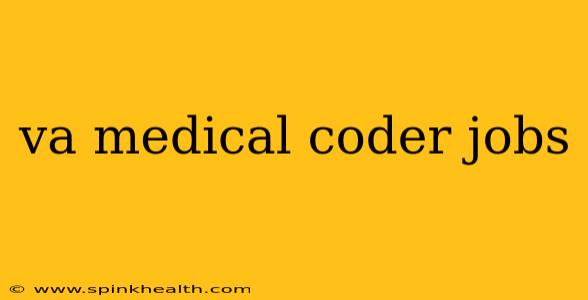Cracking the Code: A Day in the Life of a VA Medical Coder
The crisp scent of coffee fills the air as Sarah arrives at her office, ready to tackle another day as a medical coder for the Department of Veterans Affairs (VA). It’s a job that blends meticulous attention to detail with a deep sense of purpose – ensuring veterans receive the accurate and timely reimbursements they deserve. But what exactly does a VA medical coder do? It's more than just numbers; it's a crucial link in providing vital healthcare to those who have served our nation.
Let's delve into the world of VA medical coding, unraveling the intricacies of the job and exploring the path to becoming one of these vital healthcare professionals.
What does a VA medical coder do?
Sarah's day is a carefully orchestrated dance of data. She receives medical records – from routine check-ups to complex surgeries – each a unique narrative of a veteran's healthcare journey. Her task? To translate the clinical documentation into standardized medical codes using systems like ICD-10-CM (International Classification of Diseases, 10th Revision, Clinical Modification) and CPT (Current Procedural Terminology). These codes are the language of healthcare billing, allowing the VA to process claims and ensure veterans are properly compensated for their care.
This isn't simply a matter of rote memorization. Sarah must possess a keen eye for detail, ensuring the accuracy of every code assigned. A single misplaced digit can lead to payment delays or even denials, impacting the veteran's access to essential healthcare. She meticulously checks for discrepancies, ensuring the codes accurately reflect the services rendered and the diagnoses documented.
What skills are needed to be a VA medical coder?
Beyond coding proficiency, several crucial skills set successful VA medical coders apart. A strong understanding of medical terminology is paramount – Sarah needs to effortlessly navigate the complexities of anatomy, physiology, and disease processes. Analytical skills are equally vital, enabling her to decipher complex medical records and identify the most appropriate codes. Strong attention to detail is non-negotiable, as even minor errors can have significant consequences. Finally, excellent organizational skills are essential to manage the high volume of records and ensure timely processing of claims.
What is the job outlook for VA medical coders?
The demand for skilled medical coders continues to rise, and the VA is no exception. As the veteran population continues to receive care, a growing need for accurate and efficient coding professionals emerges. The job outlook is positive for those with the necessary skills and qualifications, offering stability and opportunities for advancement within the VA healthcare system.
How can I become a VA medical coder?
Many pathways lead to a career as a VA medical coder. Formal education, such as an associate's or bachelor's degree in health information technology, offers a solid foundation. Certification, such as the Certified Professional Coder (CPC) credential offered by the American Academy of Professional Coders (AAPC), demonstrates competency and enhances job prospects. On-the-job training within the VA system also provides valuable experience and professional development opportunities.
What is the salary of a VA medical coder?
Salary varies depending on experience, location, and specific role. However, VA medical coders typically enjoy competitive compensation packages that reflect the importance of their work.
Are there different types of VA medical coder jobs?
While the core function remains consistent, variations exist. Some coders might specialize in specific medical areas, like cardiology or oncology, while others focus on inpatient or outpatient coding. Opportunities for advancement exist, with experienced coders potentially moving into supervisory roles or specializing in coding audit and compliance.
Sarah's dedication ensures veterans receive the healthcare they deserve, a testament to the crucial role VA medical coders play in the smooth functioning of the healthcare system. It’s a career that combines technical expertise with a sense of purpose, making it a rewarding choice for those seeking a challenging yet fulfilling profession.

